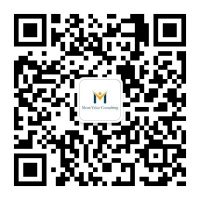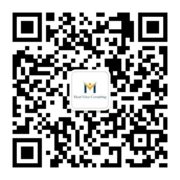10 tips for your upcoming Phone Interview
For students about to enter the workforce in North America, how do you secure a place for the final interview? How do you handle a sudden phone interview? Today, MeanValue brings us “10 tips for holding a phone interview in North America”!
1. Do your research
If the interview is scheduled in advance, learn as much as you can about the employer and the position before the interview, just as you did during the onsite interview:
Read the job Posting over and over again, and note where you met or exceeded the requirements (and failed).
Read the organization’s website (if it has one) to see where they are, what projects they’ve been working on recently, what news they’ve posted, and what job openings they might have.
Google company and product/service name, investigate whether there is any negative news about the company, and confirm the company’s legal qualification.
Read sites like Glassdoor.com to see what questions interviewers typically ask and to see salary ranges.
Doing your research will help you succeed in future interviews, as well as help you determine if you really want to work for this employer.
2. Determine if you can answer the phone
HR or hiring manager will usually email you or call you to schedule a formal interview over the phone. Sometimes they will also call you and ask for a new appointment. In this case, don’t be afraid to reschedule unless you know the position and the company well and are confident in your decision. Know that every interview is important and don’t rush into it.
Keep in mind that the phone interview is best arranged in a state where you can be fully engaged, such as in a quiet place where you can be alone and your thoughts will not be interrupted. If you have a job, it’s probably best not to take this call at your workplace. Your boss or co-worker may interrupt you, or you may find yourself looking elsewhere and being a bad influence.
3. Keep relevant documents handy and take notes
With enough information about the company and the job, you’ll be able to answer questions confidently without embarrassing situations. So, before the interview, you need to have a job description and a copy of your resume that you submitted before the interview.
If possible, take notes during and immediately after the call. First, write down the name and position of the caller. If they don’t want to tell you, ask and make sure their name is spelt correctly. Make a note of any commitments you make during the call, such as sending samples of your work, or questions you can’t answer during the call. Be careful not to reveal too much about your current or previous employer.
Make a note of things that are especially important to the interviewer and they may ask you follow-up questions about the topic. Watch out for anything that might disappoint them. These notes can help you write a thank-you note later, or prepare you for a face-to-face interview. Of course, the main thing to do during the interview process is to focus on what you say verbally, without overwriting.
4. Know the answers to frequently asked questions
When it comes to behavioral problems, don’t take them lightly. How can you answer these questions in such a short time? There are no shortcuts, only through thorough preparation and repeated practice.
About the behavior question, such as tell me yourself, why you are the best candidate? Give me an example of your organizational skills/analytical skills/leadership skills? Walk me through a project you have done? What is your biggest obstacle? A: What are your strengths and weaknesses? Etc.
Meanwhile, there are a lot of books about interview questions on the market, and there are also a lot of books on the Internet. It is the most difficult and crucial to collect and summarize the questions and write the answers with your own characteristics. Take the time to write a rough draft, then revise it according to your interview. Practice it over and over again, and you will find that it is natural for you to remember everything and answer everything.
5. Focus on your words and sounds
The interviewer can only hear you on the phone, so speak clearly and maintain an upbeat, upbeat tone. Remembering to smile will help. Try to get a hint from the interviewer (does he or she speak slowly, softly, quickly, or loudly?) “And adjust your tone of voice and words.
6. Leverage your LinkedIn profile
If the interviewer asks you to describe in detail your past experiences, difficulties and challenges, you can ask if he or she is comfortable using the Internet. If the answer is yes, suggest they visit your LinkedIn profile (the URL is in your resume) and ask them to click on the project history page. There, the interviewer will see what you’ve done, perhaps a summary of a major project or a chart that highlights your results. This will allow the interviewer to see your value more directly.
7. Avoid self-serving questions
Now is not the time to ask about benefits or salary. During the phone interview, your focus is to convince the employer that you are the candidate they must consider hiring. Avoid self-serving questions until the final interview, when HR will discuss compensation and benefits with you in detail.
8. Show your interest in the opportunity
When the call is almost over, thank the person for the opportunity and express your expectations for the next interview:
“I enjoyed speaking with you today, and I would love to discuss more of this opportunity in person.”
9. Pay attention to your questioning skills
At the end of the call, the interviewer doesn’t want to talk about what’s next, so you can just say what you think! Express your enthusiasm for the job and ask for the next step. Ask if emailing is the best way to stay in touch, so you can send thank-you notes, track the interview results, and make appointments for future interviews.
When you’re preparing for an interview, you need to prepare questions in addition to keyword analysis and interview script. When it comes to asking questions, it’s important but often overlooked. Never say no. This is a great opportunity to get information and revisit the conversation. The fundamental principle is to ask as many information as possible. It’s all about gathering more information for your next interview.
Answer to “Do you have any question?”
In addition to questions related to the position, here are some must-ask questions to ask:
1. Is this a new position? If not, what happened to the person that was in this position?
Ask this question, you can learn about the company insider. For example, this is a new position, the fast-developing company recently needed to recruit new member, then this is a sign that you will be more likely to rely on yourself if you got the job, the challenge is big, but also relatively more flexibility. If this is an old job, you may already have a lot of methods and processes, and flexibility will be smaller. If the original person got promoted to vacate the position, then you’ll roughly know your opportunities in the company. But if the last person quit this position, that means this job is hard to keep an employee.
2. Can you give me some feedback? Or what do you think about my interview?
This question not only shows the other person that you value them, but it also tells them about your weaknesses and strengths, which can be used as a reference to improve your future interview skills.
3. When can I expect to hear from you? Or what will be the next step?
By asking this question, I can make myself clear, so that I won’t be so confused when waiting, and I can provide you with the time information of follow up.
4. Could you please give me your contact information for me to follow up?
You can’t finish the interview and not know who’s who. Make sure you write down their name (and ask them to tell you how to spell it), phone number, or email. Then write a thank-you note within 24 hours of the interview.
There is another dimension of asking questions, and that is to turn passivity into the initiative. You’ve asked a lot of good questions in your conversation, especially those directly related to the position. Therefore, I know a lot of insights unconsciously. Sometimes HR is a person who is relatively easy to talk, which is the art of speaking.
10. Express your gratitude immediately
Although this is just a phone interview, there’s no reason why you shouldn’t take the time to be polite. Write a Thank You Letter by email as soon as possible after the interview. Don’t just say thank you, but reiterate your strengths and values.



